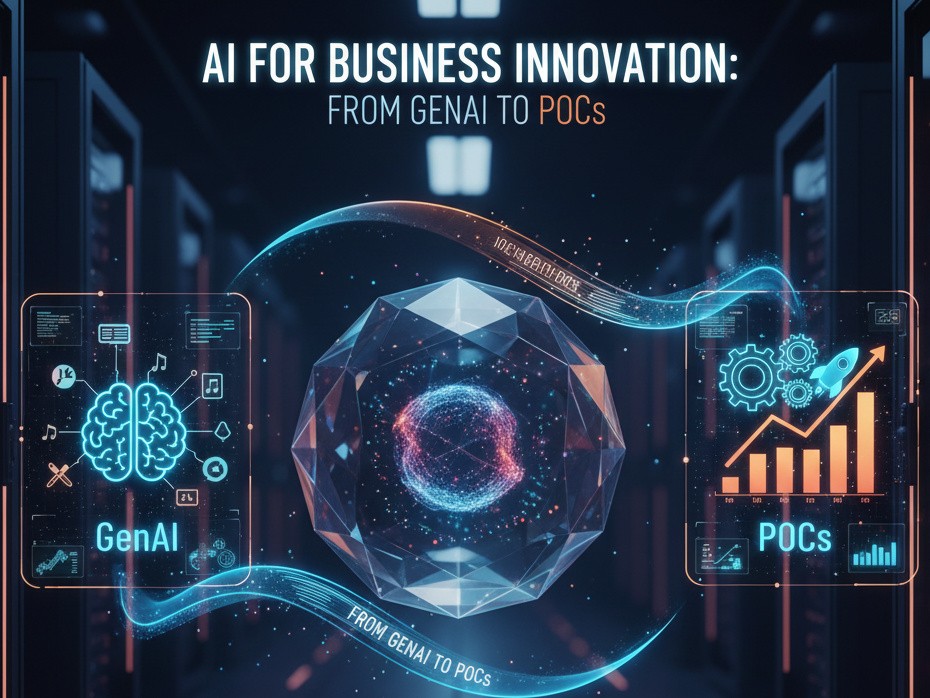Earn a certificate & get recognized
Introduction to Electric Vehicles
Enrol for this free course on Introduction to Electric Vehicles course and learn from the experts in this domain! Get insights on EV technology, charging infrastructure, environmental benefits, and more.
Instructor:
Madhur SinghIntroduction to Electric Vehicles
9.3K+ learners enrolled so far
Stand out with an industry-recognized certificate
10,000+ certificates claimed, get yours today!
Get noticed by top recruiters
Share on professional channels
Globally recognised
Land your dream job

Skills you will gain
Introduction To Electric Vehicles
EV Basics
Types Of EVs
EV Components
EV Architecture
Electric Motors
EV Batteries
Power Electronics
Control Systems
EV Charging
Home Charging
Public Charging
Fast Charging
Advantages Of EVs
Disadvantages Of EVs
+9 More
Key Highlights
Get free course content
Master in-demand skills & tools
Test your skills with quizzes
About this course
In this Introduction to Electronic Vehicles course, you'll learn about the fundamentals of electric vehicle technology, including the different types of EVs and how they work. You'll also gain an understanding of the charging infrastructure and the different options available for charging your electric vehicle. We'll also explore the advantages and disadvantages of electric vehicles, including their environmental benefits and potential cost savings. And we'll discuss the future of electric vehicles and their potential impact on the automotive industry.
This course is perfect for anyone who wants to learn more about electric vehicles, whether you're a car enthusiast or simply interested in the technology. And best of all, it's completely free! Sign up now and join us on this exciting journey into the world of electric vehicles.
Course outline
Introduction to Electric Vehicles
This module provides an overview of the basics of electric vehicles, including their history, types, and components, as well as their environmental and economic impact.
Fundamentals of Electric Vehicle Technology
This module covers the fundamental principles of electric vehicle technology, including electric motors, batteries, power electronics, and control systems.
Charging infrastructure of EV
This module focuses on the various types of charging infrastructure for electric vehicles, including home charging, public charging stations, and fast charging, as well as the challenges and opportunities associated with each.
Advantages and Disadvantages of Electric Vehicles
This module explores the benefits and drawbacks of electric vehicles, including their lower emissions, reduced operating costs, and limited range and charging infrastructure.
Future of Electric Vehicles
This module examines the current state of the electric vehicle market, as well as the technological and regulatory developments that are shaping the future of the industry, including advances in battery technology, autonomous driving, and renewable energy.
Get access to the complete curriculum once you enroll in the course
Stand out with an industry-recognized certificate
10,000+ certificates claimed, get yours today!
Get noticed by top recruiters
Share on professional channels
Globally recognised
Land your dream job

Introduction to Electric Vehicles

2.25 Hours
Beginner
9.3K+ learners enrolled so far
Get free course content
Master in-demand skills & tools
Test your skills with quizzes
Learner reviews of the Free Courses






5.0




Our course instructor

Madhur Singh
Career Growth Expert
IT & Software Expert
Frequently Asked Questions
Will I receive a certificate upon completing this free course?
Is this course free?
What are the prerequisites required to learn this Introduction to Electric Vehicles Course?
You do not need any prior knowledge except knowing EV is to learn this Introduction to Electric Vehicles Course.
How long does it take to complete this free Introduction to Electric Vehicles course?
Introduction to Electric Vehicles course is a 1.0-hour long course, but it is self-paced. Once you enroll, you can take your own time to complete the course.
Will I have lifetime access to the free course?
Yes, once you enroll in the course, you will have lifetime access to any of the Great Learning Academy’s free courses. You can login and learn whenever you want to.
Will I get a certificate after completing this Introduction to Electric Vehicles Free course?
Yes, you will get a certificate of completion after completing all the modules and cracking the assessment.
How much does this Introduction to Electric Vehicles Course cost?
It is an entirely free course from Great Learning Academy. Anyone interested in learning Introduction to Electric Vehicles can start this course.
Is there any limit on how many times I can take this free course?
No. There is no limit. Once you enroll in the Introduction to Electric Vehicles Course, you have lifetime access to it. So, you can log in anytime and learn it for free online.
Who is eligible to take this Introduction to Electric Vehicles Course?
You do not need any prerequisites to learn the course, so enroll today and learn it for free online.
Become a Skilled Professional with Pro Courses
Gain work-ready skills with guided projects, top faculty and AI tools, all at an affordable price.


View Course

Included with Pro+ Subscription

View Course

Included with Pro+ Subscription


View Course

Included with Pro+ Subscription

View Course

Included with Pro+ Subscription

View Course

Included with Pro+ Subscription

View Course

Included with Pro+ Subscription
 (1).jpg)
View Course

Included with Pro+ Subscription
.jpg)
View Course

Included with Pro+ Subscription


View Course

Included with Pro+ Subscription


View Course

Included with Pro+ Subscription


View Course

Included with Pro+ Subscription




View Course

Included with Pro+ Subscription


View Course

Included with Pro+ Subscription

View Course

Included with Pro+ Subscription

View Course

Included with Pro+ Subscription
 (1).png)
View Course

Included with Pro+ Subscription

View Course

Included with Pro+ Subscription

View Course

Included with Pro+ Subscription

View Course

Included with Pro+ Subscription

View Course

Included with Pro+ Subscription

View Course

Included with Pro+ Subscription

View Course

Included with Pro+ Subscription


View Course

Included with Pro+ Subscription

View Course

Included with Pro+ Subscription

View Course

Included with Pro+ Subscription


.jpg)
View Course

Included with Pro+ Subscription

View Course

Included with Pro+ Subscription
.jpg)
View Course

Included with Pro+ Subscription

View Course

Included with Pro+ Subscription
.jpg)
View Course

Included with Pro+ Subscription
 (1).jpg)
View Course

Included with Pro+ Subscription
.png)
View Course

Included with Pro+ Subscription
.jpg)
View Course

Included with Pro+ Subscription
.jpeg)
View Course

Included with Pro+ Subscription

View Course

Included with Pro+ Subscription

View Course

Included with Pro+ Subscription

View Course

Included with Pro+ Subscription
.png)
.png)
View Course

Included with Pro+ Subscription
.png)
View Course

Included with Pro+ Subscription
.png)
View Course

Included with Pro+ Subscription


.png)
View Course

Included with Pro+ Subscription


View Course

Included with Pro+ Subscription
.jpg)

.jpg)

.png)


View Course

Included with Pro+ Subscription


View Course

Included with Pro+ Subscription


View Course

Included with Pro+ Subscription
.png)
View Course

Included with Pro+ Subscription

View Course

Included with Pro+ Subscription

View Course

Included with Pro+ Subscription

View Course

Included with Pro+ Subscription

View Course

Included with Pro+ Subscription
Popular


View Course

Included with Pro+ Subscription

View Course

Included with Pro+ Subscription


View Course

Included with Pro+ Subscription

View Course

Included with Pro+ Subscription

View Course

Included with Pro+ Subscription

View Course

Included with Pro+ Subscription
 (1).jpg)
View Course

Included with Pro+ Subscription
.jpg)
View Course

Included with Pro+ Subscription
Microsoft Courses


View Course

Included with Pro+ Subscription


View Course

Included with Pro+ Subscription


View Course

Included with Pro+ Subscription




View Course

Included with Pro+ Subscription


View Course

Included with Pro+ Subscription
IT & Software

View Course

Included with Pro+ Subscription

View Course

Included with Pro+ Subscription
 (1).png)
View Course

Included with Pro+ Subscription

View Course

Included with Pro+ Subscription

View Course

Included with Pro+ Subscription

View Course

Included with Pro+ Subscription

View Course

Included with Pro+ Subscription

View Course

Included with Pro+ Subscription
.png)
View Course

Included with Pro+ Subscription
.png)
View Course

Included with Pro+ Subscription
.png)
View Course

Included with Pro+ Subscription

View Course

Included with Pro+ Subscription

View Course

Included with Pro+ Subscription
.jpg)
View Course

Included with Pro+ Subscription


View Course

Included with Pro+ Subscription
.png)
View Course

Included with Pro+ Subscription
.png)
View Course

Included with Pro+ Subscription


View Course

Included with Pro+ Subscription

View Course

Included with Pro+ Subscription

View Course

Included with Pro+ Subscription


View Course

Included with Pro+ Subscription

View Course

Included with Pro+ Subscription
AI & Generative AI

View Course

Included with Pro+ Subscription


View Course

Included with Pro+ Subscription

View Course

Included with Pro+ Subscription

View Course

Included with Pro+ Subscription


.jpg)
View Course

Included with Pro+ Subscription

View Course

Included with Pro+ Subscription
Management
.jpg)
View Course

Included with Pro+ Subscription

View Course

Included with Pro+ Subscription
.jpg)
View Course

Included with Pro+ Subscription
 (1).jpg)
View Course

Included with Pro+ Subscription
.png)
View Course

Included with Pro+ Subscription
.jpg)
View Course

Included with Pro+ Subscription
.jpeg)
View Course

Included with Pro+ Subscription

View Course

Included with Pro+ Subscription
.png)
View Course

Included with Pro+ Subscription

View Course

Included with Pro+ Subscription
.png)
View Course

Included with Pro+ Subscription

View Course

Included with Pro+ Subscription
.png)
View Course

Included with Pro+ Subscription
.png)
View Course

Included with Pro+ Subscription
.png)
View Course

Included with Pro+ Subscription

View Course

Included with Pro+ Subscription
Cyber Security

View Course

Included with Pro+ Subscription

View Course

Included with Pro+ Subscription
.png)
.png)
View Course

Included with Pro+ Subscription
.png)
View Course

Included with Pro+ Subscription
.png)
View Course

Included with Pro+ Subscription
Cloud Computing


.png)
View Course

Included with Pro+ Subscription


View Course

Included with Pro+ Subscription
.jpg)

.jpg)

.png)


View Course

Included with Pro+ Subscription


View Course

Included with Pro+ Subscription
.png)

View Course

Included with Pro+ Subscription
.png)

View Course

Included with Pro+ Subscription


View Course

Included with Pro+ Subscription


View Course

Included with Pro+ Subscription



Data Science & ML


View Course

Included with Pro+ Subscription
.png)
View Course

Included with Pro+ Subscription

View Course

Included with Pro+ Subscription

View Course

Included with Pro+ Subscription

View Course

Included with Pro+ Subscription

View Course

Included with Pro+ Subscription
Subscribe to Academy Pro+ & get exclusive features
₹999/month Inc. of GST
No credit card required

Learn from 40+ Pro courses

Access 500+ certificates for free

700+ Practice exercises & guided projects

Prep with AI mock interviews & resume builder
Recommended Free Software courses




Similar courses you might like




Relevant Career Paths >
Introduction to Electric Vehicles
Electric vehicles (EVs) run on electric motors powered by rechargeable batteries rather than on traditional combustion engines that use gasoline or diesel. EV development and adoption are gaining significant momentum globally, with many governments and private companies pushing for a transition toward cleaner transportation solutions. The EV industry is rapidly growing, and it is expected to continue its upward trajectory in the coming years. According to a report by BloombergNEF, by 2040, EVs will account for 58% of new passenger car sales worldwide, and by 2030, electric vehicles will account for 32% of all passenger vehicles sold globally.
The growing demand for EVs can be attributed to several factors, including increased awareness of environmental issues, the need to reduce carbon emissions, as well as advancements in technology, and falling costs. One of the most significant benefits of EVs is their lower carbon footprint. Traditional gasoline-powered cars emit harmful greenhouse gases contributing to global warming, whereas EVs emit no emissions from their tailpipes. Additionally, EVs can be powered by renewable energy sources such as wind and solar power, further reducing their carbon footprint.
Another advantage of EVs is their low maintenance costs. EVs have fewer moving parts than traditional cars, meaning fewer parts need to be replaced or repaired. This can lead to lower maintenance costs over the lifetime of the vehicle. Furthermore, EVs are becoming increasingly affordable due to technological advances and economies of scale. Battery costs, traditionally one of the most significant barriers to EV adoption, have fallen rapidly in recent years, making EVs more accessible to a wider range of consumers.
The EV industry is also benefiting from various government incentives and policies to promote cleaner transportation solutions. Many governments worldwide are offering tax incentives and rebates for EV purchases, as well as investing in infrastructure such as charging stations to support the growth of the EV industry. However, there are still some challenges facing the EV industry. One of the most significant challenges is the lack of charging infrastructure, particularly in rural and remote areas. This can be a major barrier to EV adoption, as consumers may be hesitant to purchase an EV if they are concerned about the availability of charging stations.
Another challenge facing the EV industry is the range limitations of EVs. While EVs are improving rapidly, they still typically have a shorter range than traditional cars. This can be a concern for consumers who are hesitant to purchase an EV if they are worried about running out of charge during long journeys. Finally, the upfront cost of EVs is still a barrier for many consumers, despite falling battery costs. EVs are often more expensive than traditional cars, and many consumers are still hesitant to switch due to affordability concerns.
Overall, the EV industry is growing rapidly and is expected to continue in the coming years. As technology advances and battery costs continue to fall, EVs will become more accessible to a wider range of consumers. Additionally, government policies and incentives to promote cleaner transportation solutions will further drive the growth of the EV industry. The shift towards EVs is also driving changes in the automotive industry. Many traditional automakers are now investing heavily in the development of EVs, and new players are entering the market, particularly in electric and autonomous vehicles. This is creating new opportunities for innovation and growth in the industry and new challenges as companies navigate the transition to a cleaner and more sustainable future.
In conclusion, the EV industry is an exciting and rapidly growing sector that has the potential to significantly reduce carbon emissions and contribute to a cleaner and more sustainable future. While there are still some challenges facing the industry, including the lack of charging infrastructure and range limitations.







